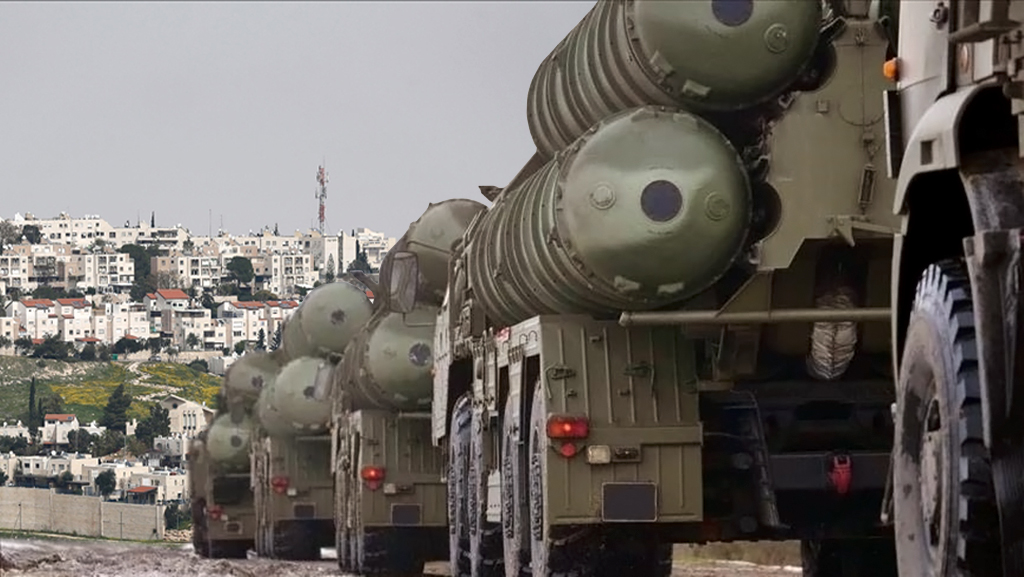In an opinion piece published in The Washington Post, a call was made for the United States to start discussing the truth about Israel's nuclear capacity. The piece, signed by expert names in the issue of nuclear weapon proliferation, notes that American government officials have been following a policy of denying Israel's nuclear weapons' existence due to a secret presidential order in effect for 60 years. Experts argue that this policy has become increasingly meaningless, especially as Israeli politicians are making nuclear weapon use threats in Gaza, and it impedes America's ability to effectively handle regional conflict scenarios. While this kind of call is not new, such debates indicate a changing perception of Israel within the American public and a questioning of America's Israel policy.
'NEITHER CONFIRM NOR DENY'
It's common knowledge that Israel possesses nuclear weapons, and Israeli politicians often boast about this capacity without hesitation. There have even been calls from far-right politicians to drop nuclear bombs on Gaza. However, despite having nuclear weapons, Israel avoids becoming a signatory to international agreements that would require it to open up to international inspection or provide any guarantees about its nuclear program. By officially maintaining a 'neither confirm nor deny' position on this issue, Israel avoids restrictions that could be imposed on its nuclear capacity while benefiting from the deterrence of being known as a nuclear power without fulfilling the obligations that come with it. This privileged position is supported with the help of the United States. Politicians like Netanyahu continue to work to persuade the US to completely eradicate Iran's nuclear capacity. Washington avoids direct confrontation with Iran but continues to provide all kinds of military aid in line with the principle of 'maintaining Israel's military superiority' as required by American laws. On the other hand, it is known that Iran's nuclear weapons threshold is political rather than technical. Iran's decision to acquire nuclear weapons could trigger efforts by regional countries such as Saudi Arabia, Egypt, and Turkey to do the same. Iran prefers to remain at this threshold because becoming a nuclear power would not only disrupt its relations with Russia and China but also lead to intense international pressure.
NUCLEAR INEQUITY
The refusal to officially acknowledge Israel's nuclear power prevents Iran from taking the same path. As Israel has not signed the NPT, it is not obliged to be open to international inspection or provide any guarantees regarding its nuclear program. Israel, with the support of the US, continues to maintain this privileged position, while politicians like Netanyahu work to persuade the US to completely eradicate Iran's nuclear capacity. Washington avoids direct confrontation with Iran but continues to provide all kinds of military aid in line with the principle of 'maintaining Israel's military superiority' as required by American laws. Meanwhile, the inability of the US to provide any guarantees regarding Israel's nuclear stance undermines Washington's negotiations with Tehran, as it cannot prevent Tehran from seeking nuclear deterrence. In other words, the US's continued preservation of Israel's privileged position in nuclear matters undermines Iran nuclear negotiations. Officially acknowledging Israel's nuclear program would not be an easy step and would have serious legal consequences. Biden, who has supported Israel so much, would find it very difficult to take such a political step. However, it is critical for the US to be able to redesign its regional policy.
The fact that Israel's nuclear capacity is beginning to be discussed in the American public, albeit to a limited extent, also reflects the discomfort caused by the political cost Israel has imposed on the US after the Gaza crisis. It can be said that the allegations of war crimes and genocide against Israel have put American liberals in a very difficult position and have led to discussions on every aspect related to Israel. The ability of the American government to formulate a policy in the Middle East based on facts and free from ideological obsessions depends on its ability to question every aspect of its relationship with Israel. Such a reckoning does not seem possible in an election year, but it can be said that the US's Israel policy is entering a period of serious questioning.
[Yeni Şafak, February 21, 2024]







